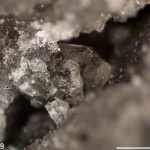 Science offers one of the more interesting areas that could be impacted by the use of artificial intelligence, and I’ve written before about its use in enhancing medical research.
Science offers one of the more interesting areas that could be impacted by the use of artificial intelligence, and I’ve written before about its use in enhancing medical research.
A nice example of this in action comes via a couple of chemists from the University of Basel. In a recent paper they describe how AI was used to explore the characteristics of crystals as they hunt for those with certain thermodynamic properties.
Hunting for crystals
Crystals are commonly used in electronics because their application as both a semi-conductor and insulator. The most potent crystal for this is Elpasolite as it has a cubic structure. The complexity of it however make it practically impossible to predict the various combinations of the four elements that make up the structure of the crystal as there are simply too many.
This is where machine learning comes into play. The team used quantum mechanics to create thousands of predictions for elpasolite crystals with random chemical compositions. The results from this were then used to train the algorithm, which after a number of iterations became more successful at accurately predicting than the maths on their own.
Within a day the model the team had created was capable of analyzing some two million elpasolite crystals and could predict the formation energy of each. Had this analysis been performed the traditional way, the researchers estimate it would have taken around 20 million hours, even using a supercomputer.
This analysis sheds some new light on this crucial class of material, with 90 crystals identified that were previously unknown to us that should have sufficiently stable thermodynamic qualities to be valuable.
As such, the elpasolite crystal has been entered into the Materials Genome Initiative via the Materials Project database that was launched in 2011 by the US government to support the discovery of new materials via just this sort of means.
DeepMind’s Demis Hassabis recently said at an RSA talk that science is a key area that him and his team are focusing on, and this study highlights the potential.
“The combination of artificial intelligence, big data, quantum mechanics and supercomputing opens up promising new avenues for deepening our understanding of materials and discovering new ones that we would not consider if we relied solely on human intuition,” the team conclude.